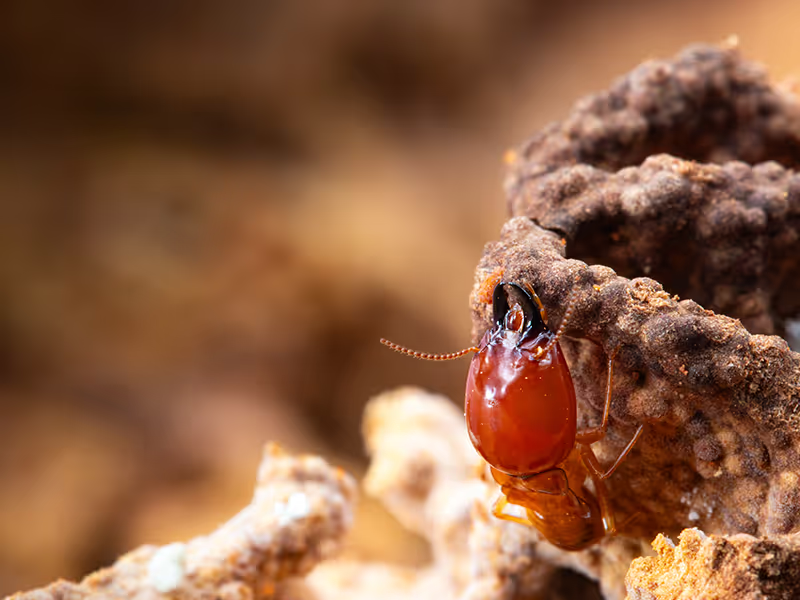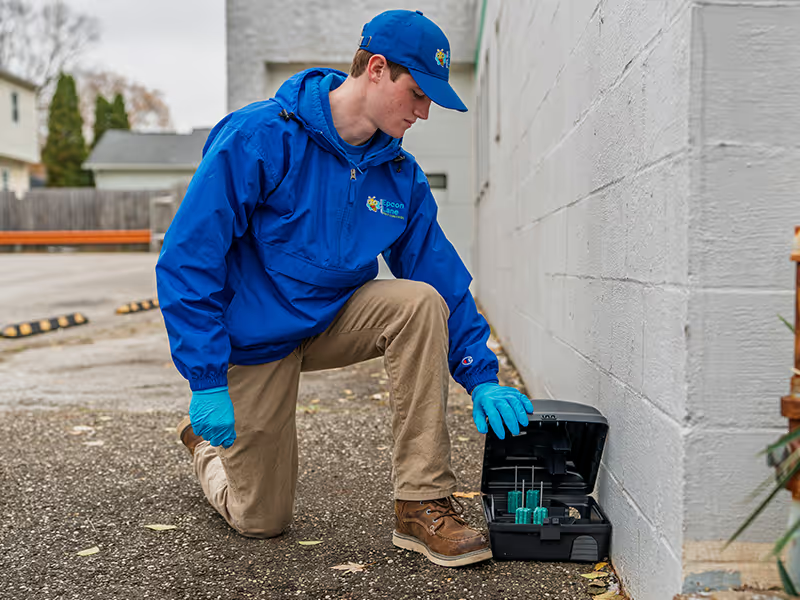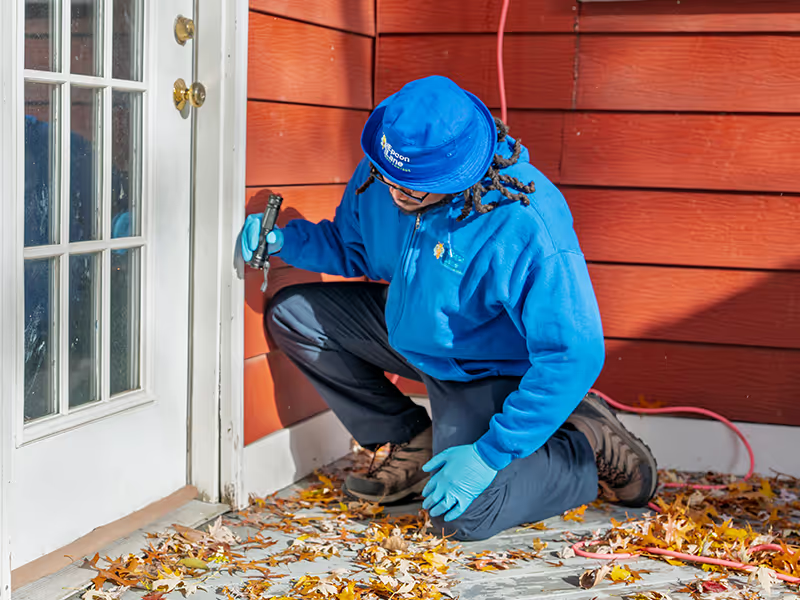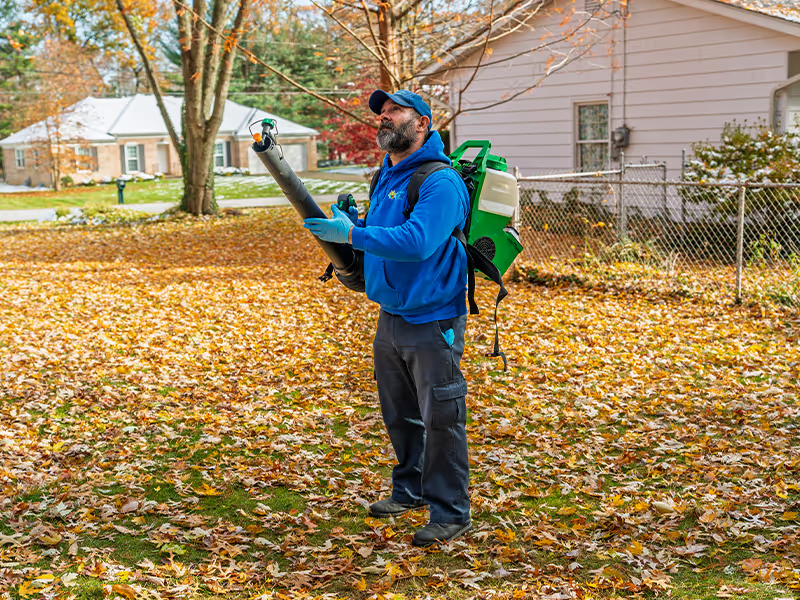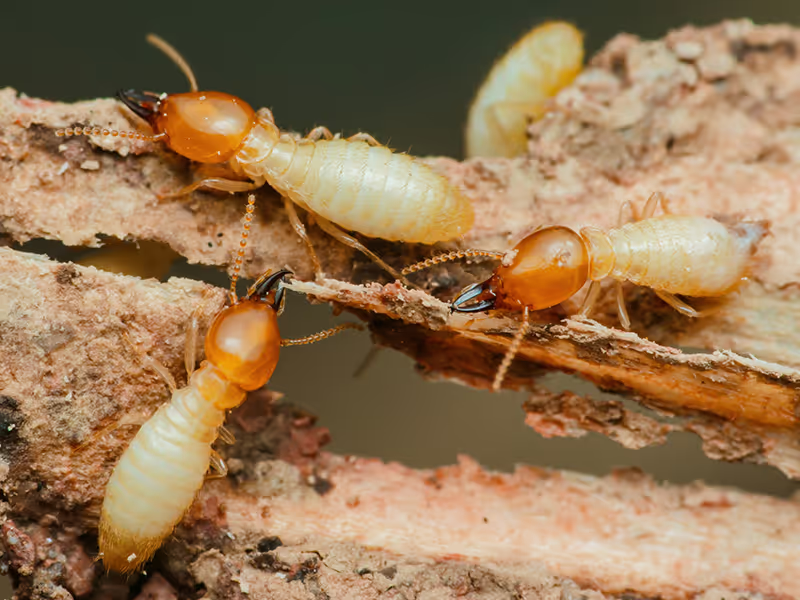How to Prevent Termites
There are plenty of do’s and don’ts when it comes to landscaping in your Akron-area yard. Here are a few tips for preventing termites that you should keep in mind.
Mulch Your Garden Wisely
When most people think about mulch, they usually envision wood-based products like wood chips or chunked bark — all filled with the cellulose that termites love to munch on. Some mulches are treated with chemicals that make them less appealing to termites, but these chemicals break down over time or leach into the soil, leaving your home at risk.
Avoid using wood mulches in garden beds beside your house. Instead, choose a low- or no-cellulose ground cover like:
- Pine straw
- Rubber mulch
- Gravel or rocks
Placement of mulch matters, too! Never apply mulch on top of or directly next to the slab or piers of your home. Instead, leave an 8–12 inch barrier between your siding and where you start using mulch. If you’re planting the proper distance from your structure, you shouldn’t need mulch any closer than that!
Mind the Moisture in Your Yard
While subterranean termites enter your home from the soil, Formosan subterranean termites prefer to sneak in using damp wood. This is why it’s incredibly important to monitor ways your backyard might be harboring excess moisture, making your home more vulnerable to termite infestations.
A backed-up or leaky gutter overflows when it rains, wetting the wood along your roofline. You might be vigilant about protection on the ground, but if clogged gutters are keeping the wood at the top of your home damp, a colony can find its way indoors there and bypass your soil barrier entirely.
What Not to Do
When it comes to preventing termites, homeowners want to do everything they can to keep these pests out and prevent them from damaging the structure of their home. Here are a few things to avoid when working on your landscaping.
Don’t Breach the Termite Barrier
Most termite prevention measures involve building a chemical barrier in the soil surrounding your home, forming an invisible line that prevents subterranean termites from tunneling into the soil and entering your structure.
If you’re working with a professional pest control company for preventative termite control, this soil should be considered off-limits! If you dig into it for planting purposes or add more soil on top, you’ll compromise the barrier around your home and increase the risk of termite damage. A good rule of thumb is to avoid planting within 8 inches of your home’s slab.
Don’t Let Branches Touch Your House
Planting close to your home doesn’t just disrupt surface-level protective barriers — it can also increase your risk of termite infestation by creating a direct route for pests.
As shrubs or vines grow alongside your house and come into contact with your siding, they begin acting as a bridge for hungry termites. All it takes is a small crack or patch of damaged siding to invite pests directly into your home. Planting too close to your home can also make it difficult for pest control exterminators to inspect those areas for termite activity.
If there are already shrubs next to your home, make sure you keep branches and leaves trimmed away from your exterior. If you’re still planning your landscape, plant three feet or more from the edge to allow enough room for growth. As an added bonus, shrubs located farther from your house benefit from better light and air circulation.
Don’t Let Your Landscaping Increase Your Risk of Termite Infestation
It’s possible to have a beautiful landscape without putting your home at increased risk of termite damage. With some careful planning and maintenance, you can design a yard you’ll enjoy — without inviting termites into your garden.
If you have any questions or are in need of termite control in Ohio, contact our local termite exterminators at Epcon Lane.

